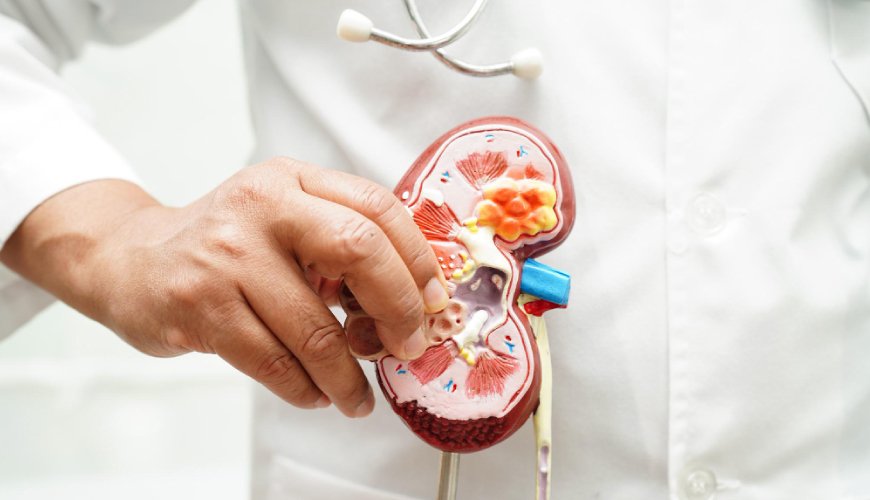A visit to the urologist can be essential for diagnosing and treating various urinary and reproductive health issues. Whether you’re dealing with frequent urination, erectile dysfunction, or other concerns, preparing for your urology appointment ensures that you make the most of your time with the doctor. In this post, we’ll guide you through the steps to take before your appointment to ensure you’re fully prepared.

1. Understand the Purpose of Your Visit
Before your appointment, it’s important to understand why you are seeing a urologist. Are you experiencing symptoms like painful urination, blood in your urine, or erectile dysfunction? Do you need a routine check-up or are you following up on a previous condition? Knowing the reason for your visit helps you focus on the symptoms or concerns that are most important.
If you’re unsure, don’t hesitate to write down any concerns you have related to urinary or sexual health. Urologists treat a wide range of conditions, from kidney stones and urinary tract infections (UTIs) to prostate issues and infertility. Being clear about your concerns helps the urologist provide the best care possible.
2. Prepare Your Medical History
Providing a detailed medical history is a critical part of your urology appointment. Be ready to answer questions about:
- Current medications: Make a list of any prescriptions, over-the-counter medications, and supplements you take. Certain medications can impact urinary function, and your urologist will need to know what you’re taking to avoid interactions.
- Past medical conditions: Mention any previous surgeries, treatments, or conditions related to the urinary or reproductive systems. This includes kidney stones, prostate issues, bladder problems, or STIs (sexually transmitted infections).
- Family history: Some urological conditions, such as prostate cancer or kidney disease, can run in families. Be prepared to share information about any urological conditions in your family, as this can help the urologist assess your risk.
3. Track Symptoms and Concerns
Keeping a symptom diary before your appointment can be incredibly helpful for your urologist. Track things like:
- Urinary habits: Note how often you urinate, whether you have trouble starting or stopping urination, or if you experience pain or discomfort. Mention any changes in your urine’s appearance, such as blood, cloudiness, or strong odor.
- Pain or discomfort: If you experience pain, note its location (e.g., lower abdomen, side, or groin), intensity, and when it occurs. Track any episodes of pain or discomfort, especially if they come and go.
- Sexual health issues: If you’re experiencing erectile dysfunction, low libido, or other sexual health concerns, document these symptoms. This will allow your urologist to better understand the issue and recommend the right course of action.
4. Bring a List of Questions
You likely have questions about your condition, treatment options, and lifestyle changes. Write them down in advance so you don’t forget to ask during your appointment. Some questions you might want to consider include:
- What is causing my symptoms, and how can it be treated?
- Are there lifestyle changes I should make to improve my condition?
- What are my treatment options, and what are the risks and benefits of each?
- How can I prevent future problems or reduce the likelihood of recurrence?
- Are there any medications or procedures I should be aware of?
Having a clear list of questions helps you have a more productive conversation with your urologist and ensures you leave the appointment with all the information you need.
5. Bring Relevant Medical Documents
If you’ve had previous tests or procedures related to your urological health, bring copies of any relevant reports. These may include:
- Imaging results (e.g., ultrasound, CT scan, or MRI scans)
- Lab results (e.g., urine tests or blood tests)
- Surgical records if you’ve had urological surgeries in the past
Having these documents on hand can provide the urologist with a better understanding of your medical history and help with diagnosis and treatment planning.
6. Dress Comfortably
During a urology appointment, your urologist may need to perform a physical examination, which could include a prostate exam for men or a pelvic exam for women. Wear loose, comfortable clothing that’s easy to remove if necessary. This allows the examination to proceed smoothly without unnecessary delays.
If you have concerns about a specific area, such as the groin or lower abdomen, it may be helpful to wear clothing that allows easy access to these areas during the exam.
7. Be Honest About Your Symptoms
It’s important to be open and honest with your urologist about your symptoms, no matter how embarrassing they may seem. Urologists are professionals trained to handle sensitive issues, and they’ve seen it all. Whether you’re dealing with incontinence, erectile dysfunction, or painful urination, being truthful will help your doctor provide an accurate diagnosis and recommend appropriate treatments.
8. Prepare for Diagnostic Tests
In some cases, your urologist may order tests during the appointment to better understand your condition. These tests may include:
- Urine analysis: A urine test can detect signs of infection, blood, or other abnormalities in the urinary tract.
- Blood tests: These tests can help evaluate kidney function or check for markers of conditions like prostate cancer.
- Imaging tests: Ultrasounds, CT scans, or MRIs may be ordered to get a closer look at the kidneys, bladder, or prostate.
If you are required to provide a urine sample, you may be asked to come with a full bladder. Be sure to follow any specific instructions given by your doctor prior to the appointment.
9. Ask About Follow-up Care
After your appointment, you may need follow-up care, especially if diagnostic tests or treatments are involved. Be sure to ask your urologist about:
- When you should expect test results
- What the next steps are after the appointment
- Any lifestyle or dietary changes you should implement
- The availability of any resources or support groups related to your condition
Understanding your next steps is crucial for managing your urological health.
Conclusion
Preparing for your urology appointment can make the visit more efficient and productive. By understanding the purpose of your visit, tracking your symptoms, bringing relevant documents, and being prepared for possible tests, you can ensure that your urologist has the information needed to provide the best care. Being honest and asking questions will help you feel more confident in your treatment plan, ultimately leading to better management of your urological health.










